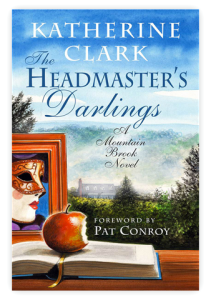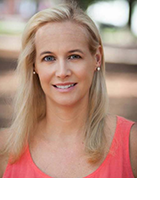 Yesterday morning before leaving New Orleans, I finished reading Katherine Clark’s novel, The Headmaster’s Darlings, which I enjoyed immensely. I bought the book for two reasons: (1) It was published by the University of South Carolina’s new fiction imprint, Story River Books (whom I dreamed of as a publisher for my novel before they closed their submissions); and (2) Pat Conroy was the editor of this new press, and wrote the Foreword. After Pat’s untimely death in March, I couldn’t help but wonder if his words in this Foreword were the last of his writing to be published. So I feel that I own more than a wonderful new Southern novel, but also a piece of literary history. As Clark says in her Author’s Note and Acknowledgements at the back of the book—which were written before his death:
Yesterday morning before leaving New Orleans, I finished reading Katherine Clark’s novel, The Headmaster’s Darlings, which I enjoyed immensely. I bought the book for two reasons: (1) It was published by the University of South Carolina’s new fiction imprint, Story River Books (whom I dreamed of as a publisher for my novel before they closed their submissions); and (2) Pat Conroy was the editor of this new press, and wrote the Foreword. After Pat’s untimely death in March, I couldn’t help but wonder if his words in this Foreword were the last of his writing to be published. So I feel that I own more than a wonderful new Southern novel, but also a piece of literary history. As Clark says in her Author’s Note and Acknowledgements at the back of the book—which were written before his death:
There are several people responsible for making sure that what I’ve written has a public life. The first is the unbelievable person who got this book into print. His name is Pat Conroy. He read my novel when it was still just a Kinko’s manuscript…. I suspected from having read Pat’s novels many times that he possessed a soul as large and generous as that of my teacher [about whom the novel was written].
I teared up as I read these words on the very last page of the book, in the “About the Author” section:
Clark is currently collaborating with Pat Conroy on his oral biography, also forthcoming from the University of South Carolina Press.
I wonder if they finished the interviews.
Before I share a few thoughts about the book itself, I’ll share some of what might be Pat Conroy’s last published words, from the Foreword:
All cities have their secret venues known only to insiders or the native born.
[Note: This reminds me so much of the opening line in my favorite novel of Pat’s, The Prince of Tides: “Geography is my wound.”]
Every Southern City has its own splendid enclave of privilege where the very rich build their mansions in earthly paradises that block most intrusions from the rowdiness and havoc of the outside world. Katherine Clark grew up in the magical kingdom of Mountain Brook, a forested chapel of ease that looks like God’s own dream of a suburb. It is Alabama’s answer to the Garden District in New Orleans, or Atlanta’s Buckhead or Charleston’s South of Broad.
 Having visited all three of those storied neighborhoods recently, I can embrace the sense of place these authors have mastered. Conroy goes on to describe the setting for Clark’s book—a private school, which is blessed with an amazing teacher (and later headmaster) who changes his students’ lives by introducing them to art and culture, makes them look honestly at history, and loves them as they are. His Foreword ends with these words:
Having visited all three of those storied neighborhoods recently, I can embrace the sense of place these authors have mastered. Conroy goes on to describe the setting for Clark’s book—a private school, which is blessed with an amazing teacher (and later headmaster) who changes his students’ lives by introducing them to art and culture, makes them look honestly at history, and loves them as they are. His Foreword ends with these words:
Katherine Clark will write her name in the book of great Alabama writers, and she will long be remembered as the creator of Norman Laney, the greatest portrait of an American teacher I have ever read, immortalized, as I believe he richly deserves, by one of his gold girls, one of his darlings. Here’s how good this book is—for the rest of my life I will also be one of Norman Laney’s darlings.
Wow, right?
I’m not going to write an actually review of the book. If you’d like to read one, I recommend Don Noble’s review at Alabama Public Radio and author Patti Callahan Henry’s interview with Katherine Clark in Deep South Magazine. All you need to hear from me is that I’m a slow reader but I finished the book in less than week, most of which time I was in New Orleans, where there were plenty of other things to do! (But since Katherine Clark taught college for thirteen years in New Orleans, I did feel a connection with her while I was there.)
Clark’s voice, as well as her finely tuned sense of place, reminded me of Kathryn Stockett’s The Help. Because The Help was written about my hometown (Jackson, Mississippi) I could identify closely with much of the setting and the story. I’ve only visited the Birmingham area briefly once or twice, so the Mountain Brook society wasn’t familiar to me before reading the book. But by the end of the last chapter, I felt I had lived there. The setting becomes another character, as equally delicious as headmaster Norman Laney and each of his “darlings” and their parents.
I’m hooked now. Looking forward to reading Clark’s next novel in the Mountain Brook Series, All the Govenor’s Men, and its sequel, The Harvard Bride. Kudos to the University of South Carolina Press for these new offerings of Southern literary.